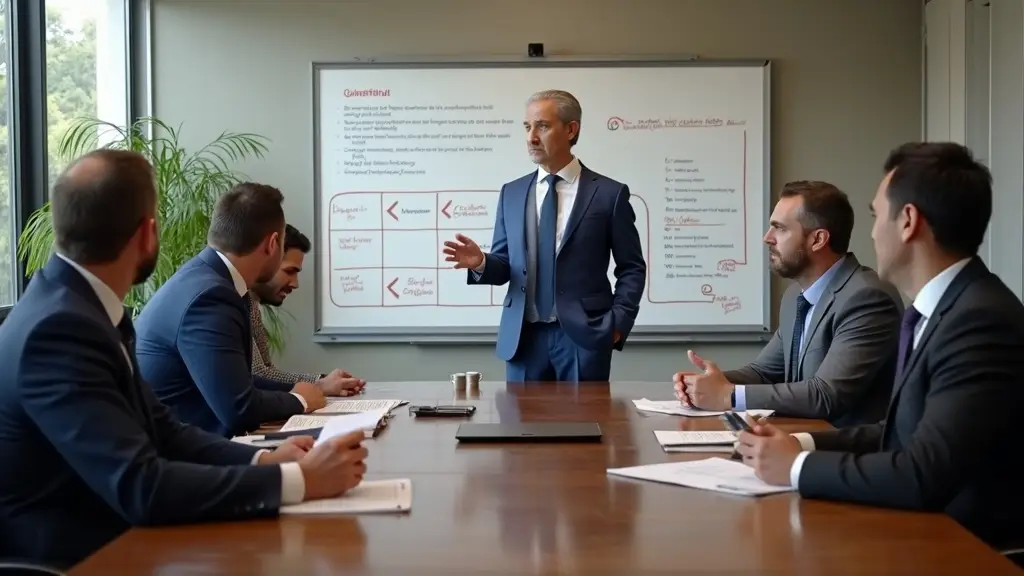A significant dispute has erupted within the Cardano community, with founder Charles Hoskinson launching a pointed rebuttal against a prominent Cardano “whale” and decentralised representative (DRep) who has vowed to vote “no” on all future funding requests from Input Output Global (IOG), Cardano’s founding engineering company. This confrontation highlights the increasing complexities of decentralised governance and the ongoing debate surrounding accountability and delivery within the blockchain ecosystem.
“Generic Rational” Accusations and Hoskinson’s Defence
The unnamed whale, operating under the alias “Generic Rational,” has publicly accused IOG of “not delivering much for years” and “requesting obscene amounts of funds to keep the same show of non-delivery going.” These claims challenge the perceived value and efficiency of IOG’s contributions to the Cardano project, especially as the ecosystem transitions into a more community-governed era.
In a 14-minute livestream on Monday, Charles Hoskinson countered these charges, labelling them “ego-driven” and “fact-free.” He rattled off a comprehensive list of milestones he asserts IOG has delivered, which he believes the community now “takes for granted.” These include the delivery of the Voltaire upgrade a year ago, the establishment of Genesis Keys, the Cardano Constitution, and a fully on-chain government. Hoskinson also cited the maturation of Hydra (Cardano’s Layer 2 scaling solution), the launch of Leios (a new smart contract platform), and Midnight’s (a zero-knowledge privacy sidechain) capacity-testing 37-million-wallet airdrop as concrete evidence that “every single IOG employee delivers something every single day.”
A central point of contention raised by the whale was the assertion that liquidating $100 million in ADA to seed a Cardano sovereign-wealth fund would “crater the token’s market price.” Hoskinson directly refuted this, stating that daily spot and derivatives turnover for ADA has consistently exceeded $2.5 billion and that over-the-counter (OTC) desks regularly handle ten-to-twenty-five-million-dollar blocks “without moving the market one bit.” He insisted it is “factually true that if you divest a hundred million dollars worth of ADA the right way, you can do it both quickly and not disrupt the market.”
Rare Evo Summit and Governance Future
This heated exchange comes just two weeks before Rare Evo, the annual developer-and-governance summit scheduled for August 6-10 in Las Vegas. This summit will be a critical forum for debating the first long-term budget under Cardano’s new constitutional era and for electing a permanent Constitutional Committee. Hoskinson, whose firm currently holds an interim seat on this committee, reminded viewers that IOG will relinquish all formal governance authority once the community-elected committee is seated later this year. He emphasised that “decentralisation doesn’t mean there’s no leadership. It means you can pick them, you can fire them, and you can change direction as a network.”
Hoskinson urged ADA holders to actively express disapproval of “ego and emotion” by redirecting stake away from representatives deemed disruptive. He warned that broad-brush obstruction threatens to turn Cardano governance into “a Jerry Springer episode,” echoing political theory by noting that “governance requires consent of the governed.”
Beyond the immediate skirmish, Hoskinson stressed the importance of the ecosystem settling on a forward-looking narrative and clear performance metrics. He argued that relying solely on total value locked (TVL) or transaction counts leaves Cardano vulnerable to external perceptions that “we’re not looking so good.” He floated Bitcoin-native DeFi and the zero-knowledge privacy sidechain Midnight as potential defining themes for the next five years but underlined that any chosen narrative must be accompanied by measurable Key Performance Indicators (KPIs) and disciplined funding.
As of July 22, ADA traded at approximately $0.89, up nearly 50% since mid-June lows. The outcome of this intensifying governance quarrel, particularly the deliberations in Las Vegas next month and the willingness of delegators to reward or punish the behaviour of their chosen representatives, will largely determine whether this momentum can be sustained. Hoskinson concluded with a familiar rallying cry: “We are now the most decentralised cryptocurrency on the planet. It’s up to all of you to keep it that way—and to demand that it’s both effective and efficient.”























